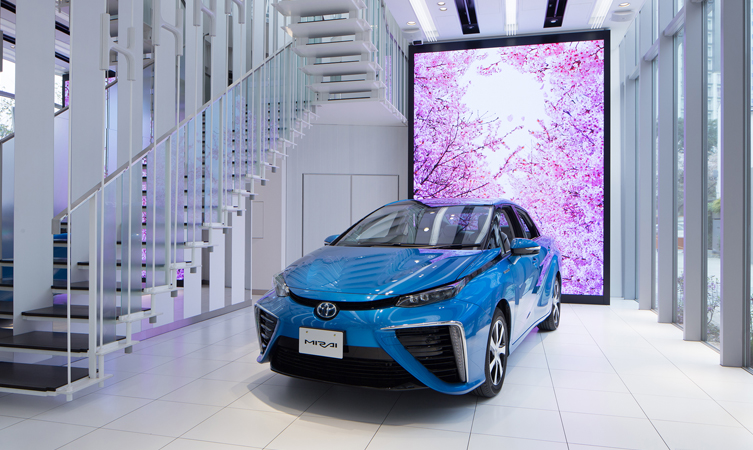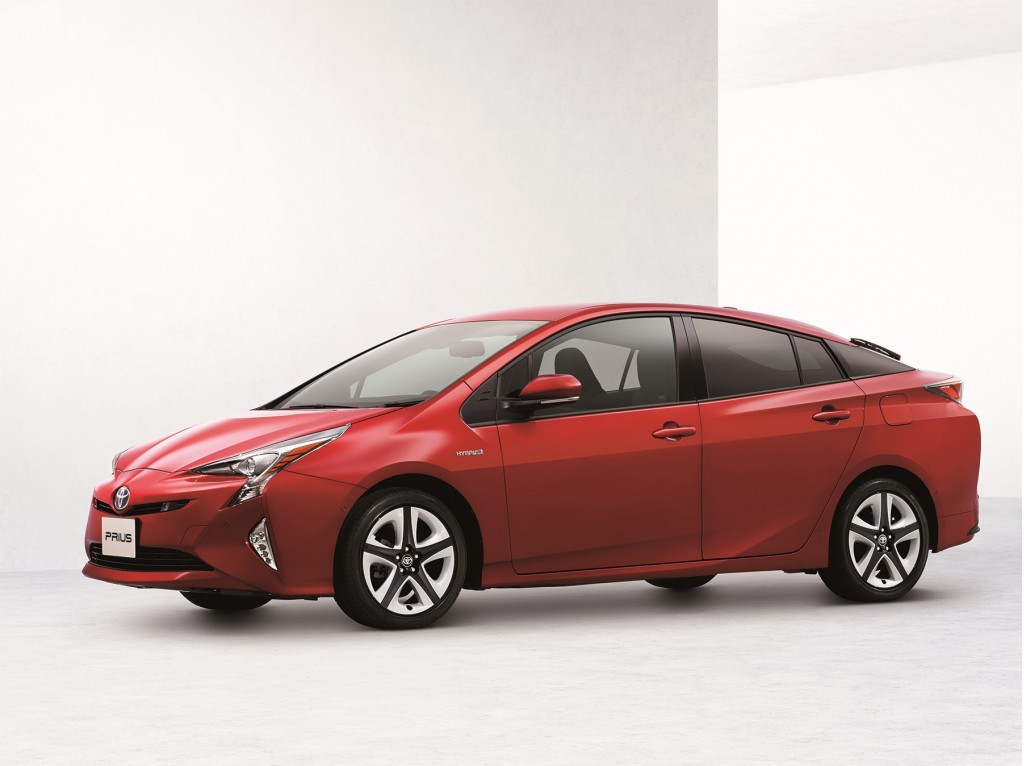While stricter global emissions standards are forcing carmakers to augment their lineups with zero-emission vehicles, it will likely be some time before internal combustion is displaced entirely--if ever.
But that is apparently just the goal that Toyota is working towards.
The Japanese carmaker reportedly says it will all but eliminate carbon-emitting vehicles from its lineup by 2050.
DON'T MISS: Toyota: Negative On Batteries Because It Has More Experience Than Any Other Maker
That was one of several efficiency-related targets recently announced by Toyota, according to BBC News.
By 2050, Toyota hopes to reduce average emissions from its cars by 90 percent compared to 2010 levels.
It also hopes to work toward virtually eliminating carbon emissions related to the production process, by increasing use of "renewable energy and hydrogen-based production methods," the BBC News report said.

Toyota Mirai showroom and hydrogen fueling station, Tokyo, Japan, May 2015
Toyota plans to achieve its carbon-reduction goal by relying heavily on hybrid and hydrogen fuel-cell cars.
It set a separate goal of selling 1.5 million hybrids globally per year by 2020.
By that same year, it also hopes to have sold more than 30,000 fuel-cell vehicle globally.
ALSO SEE: Toyota Passes 8 Million Hybrids Sold Since 1997, Still Dominates Sector
However, Toyota's plans do not appear to include any commitments at all to manufacturing battery-electric cars.
The company has shown great enthusiasm for hydrogen fuel cells, and seems to view the technology as a rival for batteries.
Officials have said fuel cells are a better choice for zero-emission vehicles because of they enable longer ranges, and can be refueled quickly, just as gasoline cars are today.

2016 Toyota Prius
And of course, Toyota has sold more hybrids than any other carmaker, and has made the Prius one of its signature models.
Earlier this year, Toyota sold its 8 millionth hybrid since 1997--when the first-generation Prius was introduced in Japan.
It launched the fourth-generation 2016 Prius last month, and it has said a plug-in hybrid version will follow sometime late next year.
MORE: More Than 1,000 People Want 2016 Toyota Mirai Hydrogen Fuel Cell Vehicles
Meanwhile, the first U.S.-bound 2016 Toyota Mirai sedans are expected to be delivered to customers in California before the end of this month.
Toyota plans to deliver 1,000 Mirai fuel-cell cars in the U.S. for the 2016 model year, and hopes to deliver 3,000 here by the end of 2017.
But unlike virtually every other global automaker--including Honda, which also plans to launch a hydrogen fuel-cell sedan--Toyota appears to be ignoring battery-electric vehicles.
Hmmmmmmmmmmmmmmm.
[hat tip: Brian Henderson]
_______________________________________________












